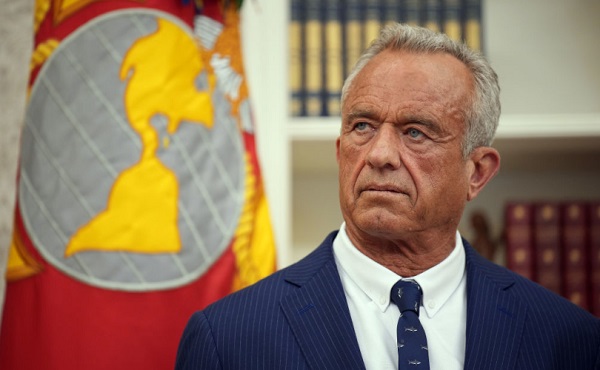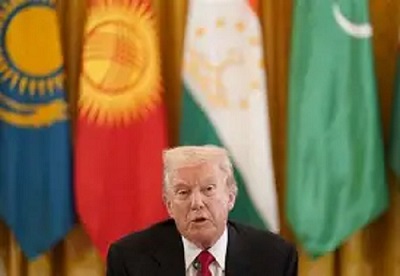International
Euthanasia advocates use deception to affect public’s perception of assisted suicide

From LifeSiteNews
Politicians claim that moral opposition to assisted suicide (or suicide in general) and euthanasia is religiously motivated and then make the leap to insisting that this means such opposition should be ignored.
Euthanasia activists are currently doing what they do best: the bait and switch.
As the debate heats up in the U.K., all of the familiar tactics are on display. First, of course, there is the relentless lying. Despite the case study of Canada, the Netherlands, and Belgium – and despite disability activists, judges, palliative physicians, and the secretaries of health and justice warning that no “safeguards” will hold – U.K. euthanasia activists are insisting that this time everything will be different.
The response to these critiques has been predictable but infuriating. Euthanasia activists insist that all of this is about religion – that those nasty Christians are, once again, seeking to impose their suffering-based theology on the country. (This despite the fact that even Ann Furedi, who heads up the U.K.’s second largest abortion provider, opposes the proposed assisted suicide law.) One good microcosmic example of this tactic comes from UK writer Julie Street, who posted to X (formerly Twitter):
Just walked out of Mass bloody fuming – our priest used the homily to read a letter from the Catholic bishops telling people to oppose the Assisted Dying Bill then handed out cards with our local MP’s details on to lobby them. Religion has no place in politics or women’s rights.
There is much to say in response, of course. Why is Street so surprised to discover that her Catholic priest and bishops are, in fact, Catholic? Is she ignorant of the religion that she at least appears to practice? How airtight does one’s mind have to be not to see assisted suicide and euthanasia as religious issues? Indeed, “euthanasia” is Greek for “good death” – the theological premises are baked right into the term. Or does Street think that religious people should shut their mouths in the political arena and voluntarily disenfranchise themselves as the fates of the weak are decided?
Is Street also ignorant of the fact that it was largely due to the Catholic Church’s public opposition that Adolf Hitler moved the Nazi’s euthanasia operation underground? (We now know, of course, that the Nazis only claimed to have disbanded the T-4 program.) I thought progressives wanted a Church that stood up for the weak, vulnerable, and dispossessed – and who qualifies more than the sick, elderly, and those with disabilities? Christians are accused of not being loving enough, and then rebuked when they stand up for the victims the political class deems expendable – first the unborn, now those on the other end of life’s spectrum.
But there’s more to this tactic than grating ignorance. Progressives like to play both sides of the fence. Take abortion, for example. Politicians like to claim that it is a religious issue, and that thus they cannot legislate against it due to the fact that we live in pluralistic societies. Many religious leaders are quite happy to follow this logic, claiming that since abortion is a political issue, it cannot be discussed in church. And all the while, the countless corpses of the aborted unborn pile up in the No Man’s Land between.
The assisted suicide debate is unfolding along similar lines. Politicians claim that moral opposition to assisted suicide (or suicide in general) and euthanasia is religiously motivated and then make the leap to insisting that this means such opposition should be ignored. Meanwhile, because politicians are debating the issue, folks like Street can claim that because this is now a political issue, priests and pastors should keep their traps shut. See what they did there? It’s a neat trick, and despite how farcical and illogical it is, it seems to work with maddening regularity.
In fact, the priest Julie Street had the good fortune to hear was standing in the tradition of the clergy who stood up against Adolf Hitler and his eugenicist gang – and fighting the same evil being advanced under many of the same premises, to boot. She should be grateful. If she can’t manage that, she should at least be better educated.
Health
RFK Jr. urges global health authorities to remove mercury from all vaccines

From LifeSiteNews
Health and Human Services (HHS) Secretary Robert F. Kennedy Jr. is urging health leaders across the planet to stop including mercury in vaccinations.
“Now that America has removed mercury from all vaccines, I call on every global health authority to do the same — to ensure that no child, anywhere in the world, is ever exposed to this deadly neurotoxin again,” he said.
Kennedy’s comments came in a video he recorded for the Minamata Convention on Mercury. The event is an international gathering aimed at preventing human contact with mercury, which, according to the World Health Organization (WHO), is one of the top 10 chemicals of major public health concern. The treaty, backed by the United Nations (UN), was first signed in 2013 by over 140 countries.
Kennedy noted that while the group’s goal is no doubt praiseworthy, it has not gone far enough in its efforts.
“Article 4 of the convention calls on parties to cut mercury use by phasing out listed, mercury-added products. But in 2010, as the treaty took shape, negotiators made a major exception. Thimerosal-containing vaccines were carved out of the regulation,” he recalled.
“The same treaty that began to phase out mercury in lamps and cosmetics chose to leave it in products injected into babies, pregnant women, and the most vulnerable among us,” he noted. “We have to ask: Why? Why do we hold a double standard for mercury? Why call it dangerous in batteries, in over-the-counter medications, and make-up but acceptable in vaccines and dental fillings?”
This past summer, Kennedy’s Advisory Committee for Immunization Practices launched a study to research the vaccine schedule for children. Among other recommendations, the committee advised the removal of thimerosal, a neurotoxic, mercury-containing preservative that had been used in flu shots.
Kennedy noted in his video message that “thimerosal’s own label requires it to be treated as a hazardous material and warns against ingestion,” adding that “there is not a single study that proves it’s safe. That’s why in July of this year the United States closed the final chapter on the use of thimerosal as a vaccine preservative, something that should have happened years ago.”
Kennedy further explained that thimerosal is “a potent neurotoxin, a mutagen, a carcinogen, and an endocrine disrupter” while noting that “safe alternatives” already exist.
“Manufacturers have confirmed that they can produce mercury-free, single dose vaccines without interrupting supply. There is no excuse for inaction or holding stubbornly to the status quo,” he exclaimed. “Now that America has removed mercury from all vaccines, I call on every global health authority and every party to this convention to do the same.”
“Let’s honor and protect humanity, and our children, and creation from mercury,” he concluded.
The Minamata Convention on Mercury went into effect in August 2017. It was initially approved by the Intergovernmental Negotiating Committee in Geneva, Switzerland, in January 2013. It was adopted in October 2013 at a Diplomatic Conference in Kumamoto, Japan. Per its website, it is named “after the bay in Japan where, in the mid-20th century, mercury-tainted industrial wastewater poisoned thousands of people, leading to severe health damage that became known as the ‘Minamata disease.’”
Censorship Industrial Complex
School Cannot Force Students To Use Preferred Pronouns, US Federal Court Rules


From the Daily Caller News Foundation
“Our system forbids public schools from becoming ‘enclaves of totalitarianism.’”
A federal appeals court in Ohio ruled Thursday that students cannot be forced to use preferred pronouns in school.
Defending Education (DE) filed the suit against Olentangy Local School District (OLSD) in 2023, arguing the district’s anti-harassment policy that requires students to use the “preferred pronouns” of others violates students’ First Amendment rights by “compelling students to affirm beliefs about sex and gender that are contrary to their own deeply held beliefs.” Although a lower court attempted to shoot down the challenge, the appeals court ruled in a 10-7 decision that the school cannot “wield their authority to compel speech or demand silence from citizens who disagree with the regulators’ politically controversial preferred new form of grammar.”
Because the school considers transgender students to be a protected class, students who violated the anti-harassment policy by referring to such students by their biological sex risked punishments such as suspension and expulsion, according to DE.
Dear Readers:
As a nonprofit, we are dependent on the generosity of our readers.
Please consider making a small donation of any amount here.
Thank you!
“American history and tradition uphold the majority’s decision to strike down the school’s pronoun policy,” the court wrote in its opinion. “Over hundreds of years, grammar has developed in America without governmental interference. Consistent with our historical tradition and our cherished First Amendment, the pronoun debate must be won through individual persuasion, not government coercion. Our system forbids public schools from becoming ‘enclaves of totalitarianism.’”
OLSD did not respond to the Daily Caller News Foundation’s request for comment.
“We are deeply gratified by the Sixth Circuit’s intensive analysis not only of our case but the state of student First Amendment rights in the modern era,” Nicole Neily, founder and president of DE, said in a statement. “The court’s decision – and its many concurrences – articulate the importance of free speech, the limits and perils of public schools claiming to act in loco parentis, and the critical role of persuasion – rather than coercion – in America’s public square.”
“Despite its ham-fisted attempt to moot the case, Olentangy School District was sternly reminded by the 6th circuit en banc court that it cannot force students to express a viewpoint on gender identity with which they disagree, nor extend its reach beyond the schoolhouse threshold into matters better suited to an exercise of parental authority,” Sarah Parshall Perry, vice president and legal fellow at DE, said in a statement. “A resounding victory for student speech and parental rights was long overdue for families in the school district and we are thrilled the court’s ruling will benefit others seeking to vindicate their rights in the classroom and beyond.”
-

 espionage2 days ago
espionage2 days agoU.S. Charges Three More Chinese Scholars in Wuhan Bio-Smuggling Case, Citing Pattern of Foreign Exploitation in American Research Labs
-

 Business1 day ago
Business1 day agoCarney budget doubles down on Trudeau-era policies
-

 Daily Caller2 days ago
Daily Caller2 days agoUN Chief Rages Against Dying Of Climate Alarm Light
-

 COVID-191 day ago
COVID-191 day agoCrown still working to put Lich and Barber in jail
-

 Business1 day ago
Business1 day agoCarney’s Deficit Numbers Deserve Scrutiny After Trudeau’s Forecasting Failures
-

 Business1 day ago
Business1 day agoCarney budget continues misguided ‘Build Canada Homes’ approach
-

 International1 day ago
International1 day agoKazakhstan joins Abraham Accords, Trump says more nations lining up for peace
-

 Business2 days ago
Business2 days agoU.S. Supreme Court frosty on Trump’s tariff power as world watches








